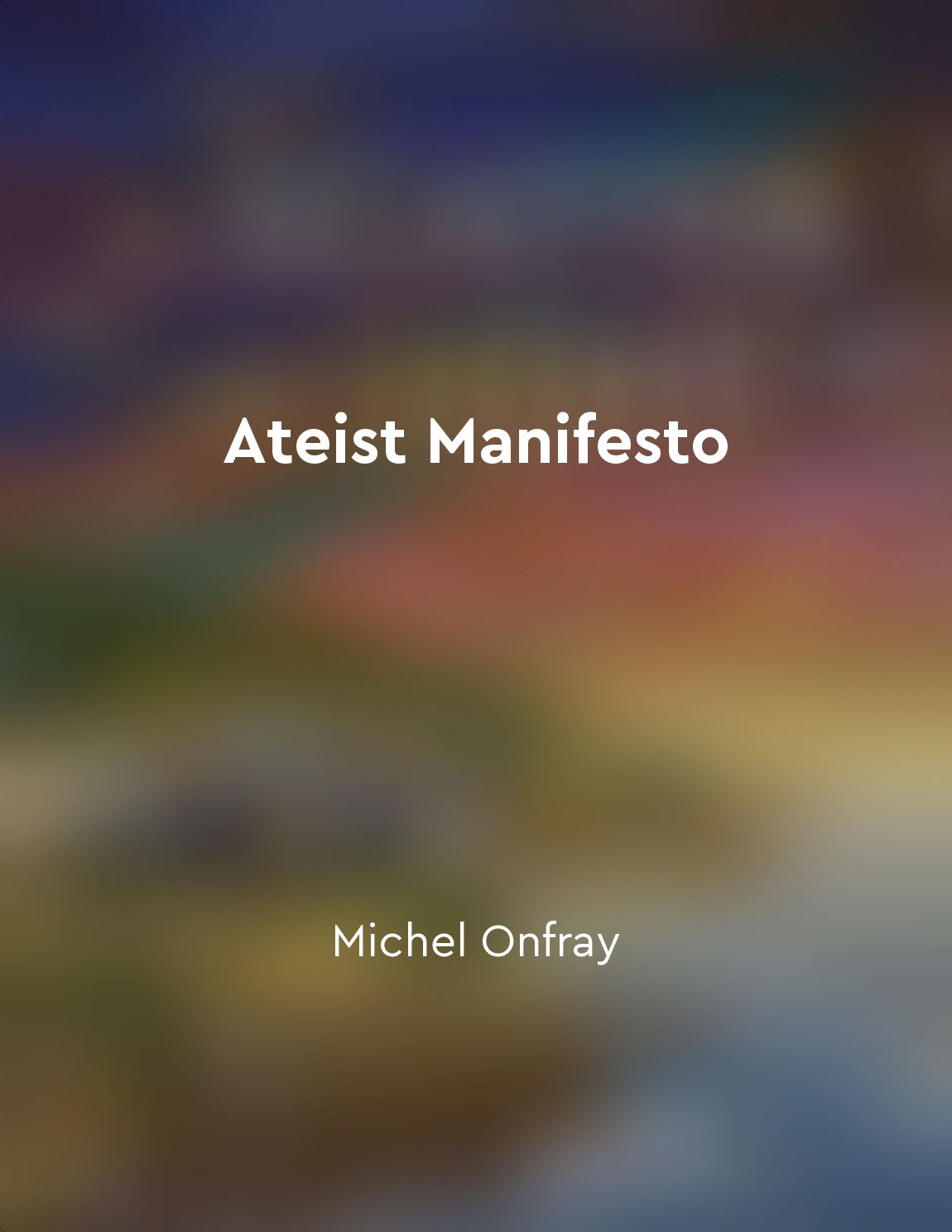Atheism is a rejection of arbitrary authority from "summary" of Ateist Manifesto by Michel Onfray
Atheism is not simply a denial of the existence of God, but a refusal to submit to any form of arbitrary authority. It is a rejection of the idea that there is a higher power to which we must bow down and obey without question. This includes not only religious authorities, but also political, social, and moral authorities that seek to dictate how we should live our lives. By rejecting arbitrary authority, atheists assert their autonomy and freedom to think for themselves. They refuse to be bound by dogma or tradition, choosing instead to rely on reason and evidence to guide their beliefs and actions. This is not to say that atheists are devoid of moral principles or values; rather, they derive their morality from empathy, compassion, and a desire to promote the well-being of others. Atheism is a stance of intellectual independence and skepticism, a willingness to question and challenge established beliefs and institutions. It is a refusal to accept anything on faith alone, demanding instead rational justification and empirical proof. This does not mean that atheists are closed-minded or unwilling to consider new ideas; on the contrary, they are open to evidence and argument, but require a high standard of proof before accepting any claim as true. In a world where authority figures often abuse their power and exploit the trust of their followers, atheism serves as a necessary counterbalance. It reminds us that blind obedience is not a virtue, but a dangerous folly that can lead to oppression, injustice, and suffering. Atheists advocate for critical thinking, individual autonomy, and the pursuit of truth, values that are essential for a free and enlightened society. In rejecting arbitrary authority, atheists affirm their commitment to reason, freedom, and human dignity. They refuse to be cowed by threats of divine retribution or promises of eternal reward, choosing instead to live according to their own conscience and values. Atheism is not a rejection of morality or meaning, but a rejection of the idea that such things can only come from above. It is a declaration of our inherent capacity for goodness, compassion, and ethical behavior, grounded in our shared humanity.Similar Posts
Islam emerged as a monotheistic faith in the Arabian Peninsula
Islam's emergence as a monotheistic faith in the Arabian Peninsula was a significant development in the history of religion. Be...

Atheism is not a belief system
Atheism is not a belief system. It is not a worldview, a philosophy, or a faith. It is simply a lack of belief in gods. This di...

The burden of proof lies with believers, not atheists
Believers in gods must bear the burden of proof. If they believe in a deity, they must provide evidence. It is not the responsi...

Theism perpetuates a false sense of superiority
Theism, as a belief system, has long been criticized for perpetuating a false sense of superiority among its followers. This su...

Atheists value ethics based on empathy and reason
In the absence of a god or divine mandate, atheists are free to choose their ethics based on empathy and reason. This means tha...
